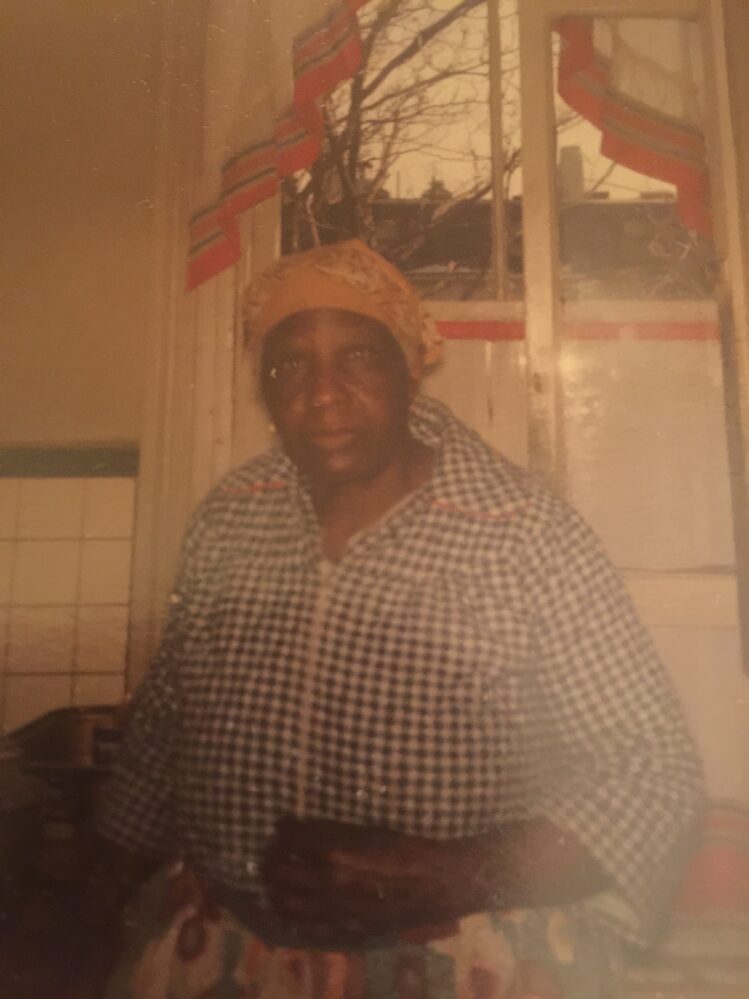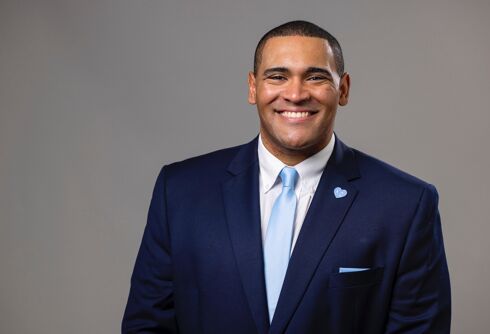As a Black trans person who grew up in the ‘80s, I learned early on what support – or lack thereof – felt like. I understood that family could make or break you emotionally, mentally and spiritually.
This understanding ultimately led me to create Destination Tomorrow, a TLGBQ center in the South Bronx that serves the community through educational, financial, housing, health and personal support programs.
Related: These leaders are amplifying the voices of the Black queer community
My goal was to build a safe and affirmative space that many could consider a second home, a place where they could become part of a community that stands by them every step of the way.
Never Miss a Beat
Subscribe to our newsletter to stay ahead of the latest LGBTQ+ political news and insights.
A very important role model in my family put me on the path towards becoming a dedicated advocate and instilled in me a drive to constantly find new ways to be of service to my community.
My grandmother was my best friend, mentor and biggest supporter. Elizabeth Coleman was also my primary caregiver.
My mother was 15 years old when she had me, so my grandmother took on the responsibility of raising me and my brother. She provided for us in every sense of the word, nurturing us from infancy to young adulthood. My grandmother always knew there was something uniquely different about me.
“Shawnie, I think you’re gonna be one of those faggot women,” she said to me when I was a teenager. Of course, in almost any other situation, this is the worst thing someone could say to a member of the LGBTQ community. But in this instance, it showed me that she was perhaps the only person to really know and fully see me.
I was blessed with a praying granny – a grandmother who puts her faith first and lifts her loved ones up in prayer – who continues to be my biggest inspiration to this day. A praying granny who knew her child was going to need protection from a cruel world.
Aunt Beth, as my grandmother was affectionately called, showed me what it meant to be of service. She was the neighbor who dropped off kids at school whose parents weren’t up for it. She collected milk from the local elementary school to pass out to single mothers. She went grocery shopping for seniors even though she was in her 70s herself. Seeing my grandmother’s impact on the community taught me the importance of giving back.
She liked to say, “Shawnie, your good deeds are adding stars to your crown.” Picturing having a crown that would be enhanced by my acts of service kept me inspired to assist others and, ultimately, put me on a path to public service.
My grandmother was a schoolteacher in her hometown of MaCray, Ga., where she taught reading and writing. She loved showing her grandchildren the pictures of the single-story white schoolhouse where she taught. Her face beamed with pride when she told stories about excited children singing songs during recess and playing around the big oak tree in the front yard.
When she retired and moved to New York City with her younger sister, they purchased several brownstones in Bed-Stuy, Brooklyn. We lived in one and rented out the others. I watched as my grandmother provided shelter for so many families who were often unable to fully cover their rent. My grandmother never met a stranger. She extended herself to anyone who needed her, in whatever form that need manifested.
The daughter of a sharecropper, my grandmother understood the importance of being financially secure. She made sure my brother and I had the tools we needed to survive. She explained the importance of credit at a time when schools did not provide this education. Too many still don’t.
My grandmother showed us what a budget is and how it provides a snapshot of our overall finances. One of my monthly responsibilities was taking the rent money from the tenants to the bank. What would be a daunting task for some kids was just a regular Friday for me.
When my grandmother was no longer able, I remember going grocery shopping in her place for the seniors in the neighborhood. They were so happy to have company and talked to me for hours as they put their grocery lists together.
They would ask me how school was, what new interests I had and offer to buy me treats as our little secret. What I didn’t understand at the time is that those seniors had no other family and longed for any kind of interaction.
Many people work for the community as a means to an end; I work for my community because I understand how it impacts those on the receiving end.
I understand that my work is not rooted in what’s best for me but for my proverbial village. My grandmother taught me so much about being present and available to others. I am grateful for her wisdom and the seeds she planted when I was a child that are slowly bearing fruit today.

Don't forget to share:














